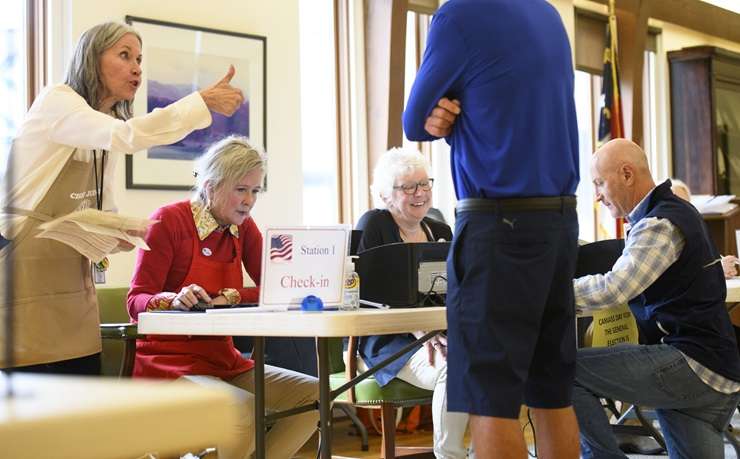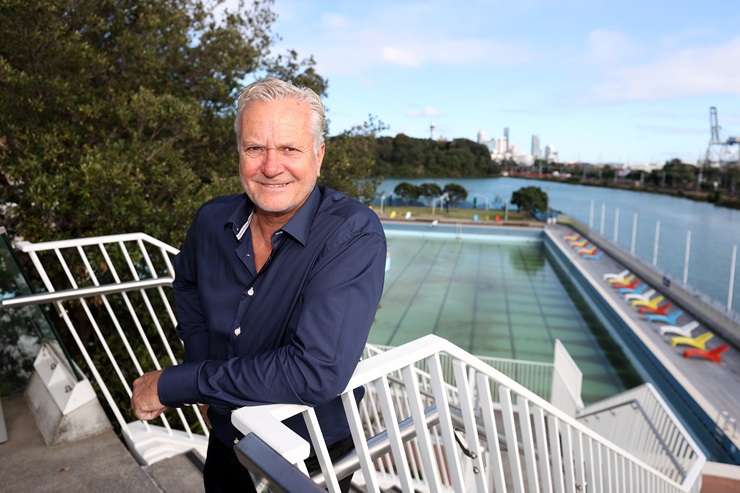Luxury real estate company New Zealand Sotheby’s International Realty is reporting a “remarkable surge” in website traffic from America following Donald Trump’s return to the White House.
As results of the US presidential election came in last week, interest in New Zealand properties from US visitors increased by 421% on the global Sotheby’s website while US visits to the New Zealand site rose 112%, with the company reporting sustained engagement in the week since Trump’s victory.
The results are in line with Google trends on election night – the New Zealand Herald reported top search queries included “Immigrate to New Zealand”, “New Zealand immigration”, “How can I move to New Zealand”, “How to move to Canada from US”, and “New Zealand citizenship”, followed by searches like “Can an American move to New Zealand” and “Cost of living in New Zealand”.
US views of listings on OneRoof after the election also jumped, with traffic from America in the seven days from November 6 up 149% on the previous seven-day period. The biggest surges were in Virginia, Oregon, North Carolina and Iowa, the last two of which were won by Trump.
Start your property search
Discover more:
- Tony Alexander: Where Kiwis plan to splash the cash now rates are falling
- PM puts $930,000 price on rental property after pulling it from auction
- Hare Krishnas put failed Northland commune on the market for sale
Sotheby’s data also shows lifts in visits from some of the states won by Democratic Party presidential candidate Kamala Harris.
“Visitors are particularly drawn to lifestyle and rural listings, which are seeing a 138% boost in visits, and city properties in Auckland and Wellington with visits up by 171.1% and 115% respectively,” said Mark Harris, managing director for NZ Sotheby’s International Realty.
He told OneRoof New Zealand’s foreign buyer ban meant the increase in Americans searching properties here did not mean they were about to uproot their lives and actually move.
“I think there’s probably people who go, ‘Right, if he gets in I’m going to seriously think about moving’, then they wait to see the effect he has on the economy and their local environment and then if they don’t like the look of what’s coming at them culturally, socially, unrest, then it does encourage them to look and purchase further afield,” he said.
“We’ve had that sort of feedback but whether sentiment turns into transaction and residence visas and that sort of thing – a lot of them would be keen if the rules were easier and simpler.”

NZ Sotheby’s International Realty managing director Mark Harris: "Visitors are particularly drawn to lifestyle and rural listings." Photo / Supplied
The foreign buyer ban allows people from Australia and Singapore to buy property in New Zealand but other nationalities have to go through what can be a lengthy Overseas Investment Act process.
Harris did not recall many Americans moving here last time Trump was in power but said there was always strong interest from America, particularly California, and that if the ban was removed he had no doubt there would be buyers.
“We’re dealing with clients at the moment from the US, people who are waiting and hoping that the rule is going to change and are interested in purchasing property here – super wealthy people from the US that would love the idea of owning a home in New Zealand if they could.”
For the Australians and Singaporeans who did buy property, a change of government did not tend to be the reason, Harris said.
“There’s probably sentiment that gets generated by people’s satisfaction or dissatisfaction of leaders but I think it’s probably more reflected in policies when they change.
When Australia added in land tax and tweaked the stamp duty percentages to make it more restrictive to have a second home or a third home in Australia, New Zealand became a more attractive place to buy in, he said.
“If they can buy one in New Zealand, it doesn’t come with the same tax implications, so those sort of things definitely have an effect.”

Voters in North Carolina, in the US. Visits to OneRoof from users in the state spiked after Trump’s victory. Photo / Getty Images
Other global events also lead to upticks in website traffic, Harris said. In the last year there had been traffic from elsewhere, including the Middle East “and you do wonder whether that’s related to the geopolitical stuff going on there, and Europe and Ukraine.
“There’s been quite a pickup in the last 12 months and that’s not all US-based so turmoil appears to encourage eyeballs and enquiry on our website.”
Ross Hawkins, who deals in luxury property for Ray White, expected more inquiry once Trump was back ensconced in the White House in January, although he thought people moving to New Zealand would mainly be expats.
“That will be the telling time, when they’ve actually taken power and the changes are happening, I would think.
“It might take a little while to filter through but there’s a lot of people I think will come.”
Hawkins, too, said global events tended to spur interest in New Zealand.
“When all that ISIS terrorism and stuff was going on there was definitely a big increase. We’re a safe haven down here. We had people from Germany and the States, different parts of Europe. It’s across the board.”

Ray White agent Ross Hawkins: “When all that ISIS terrorism and stuff was going on there was definitely a big increase." Photo / Fiona Goodall
Trump’s re-election has also caused some concern over whether his policies could lead to mortgage rates rises in this country, but economists spoken to by OneRoof said there was no need to panic, at least not yet.
The downward trajectory of interest rates which began this year is likely to continue, but perhaps by not as much as it might have.
Brad Olsen, principal economist for Infometrics, said there was unlikely to be any noticeable impact on house prices but there could be impact on interest rates.
“Trump’s general policies are seen by most economists to be inflationary compared to otherwise,” he told OneRoof.
“If that’s the case there’s a risk the US Federal Reserve doesn’t feel the need next year to cut quite as much and if global interest rates are holding at a higher level than otherwise that might limit just how much further interest rate cuts there might be in New Zealand.”
Mortgage rates would still fall, “but maybe the end result is slightly higher than where they otherwise would have been”.
ANZ chief economist Sharon Zollner said impact from Trump’s policies would likely be indirect and at the margin.
“Everyone’s waiting to see how much is bluster and how much is going to actually turn up in policy.

ANZ chief economist Sharon Zollner says US tariffs could be an issue for the global economy. Photo / New Zealand Herald
“The sort of numbers he’s throwing around tariffs would be an unprecedented experiment and given he’s arguably being elected because of the cost of living crisis that people have blamed Biden for it would be ironic if he was then to introduce a bunch of policies that would increase the cost of living for American consumers.”
Even if New Zealand flew under the radar on tariffs, there could still be impact if Trump imposed hefty tariffs on China.
“For example, if the US was going to put a big tariff on furniture exports that would impact our logging exports to China so you can get these sort of second-round impacts.”
Trump’s policies were inflationary and higher interest rates in America tended to mean higher interest rates everywhere, but that was not the main driver of interest rates in New Zealand, Zollner said, and the expectation was the Reserve Bank would still cut the OCR later this month.
ASB’s chief economist, Nick Tuffley, agreed much came down to what extent Trump implemented inflationary policy, such as tariffs.
“The other issue is Donald Trump’s administration is likely to have looser fiscal policy which potentially will be inflationary in the US and mean that interest rates could be higher in the US than otherwise, and that could impact through onto New Zealand, particularly on longer term interest rates.”
The ASB was “pretty comfortable” the next OCR announcement would drop by 50 basis points but the Reserve Bank could next year revert to 25 basis point cuts until it had a clearer picture of risks.
Trump aside, there were other matters to be concerned about, such as European security and the Middle East, as well as ongoing tensions in the Asia Pacific region.
Zollner also spoke of the elevated geopolitical risk in the China Sea and the Middle East.
“Clearly the risk still remains you could see a big jump in the oil price, for example, or just generally. As geopolitical security deteriorates countries feel the need to militarise and that’s really expensive and resource hungry and inflationary.”
Olsen said other forces, including at home, were key in dictating the housing market: “The fact there’s still very high levels of stock unsold on the market is keeping downward pressure, or certainly not as much upward pressure, on house prices at the moment.
“If I look at the housing market, that’s a lot more important than the likely longer term and indirect effect of a US president change.”
- Click here to find properties for sale
















































































